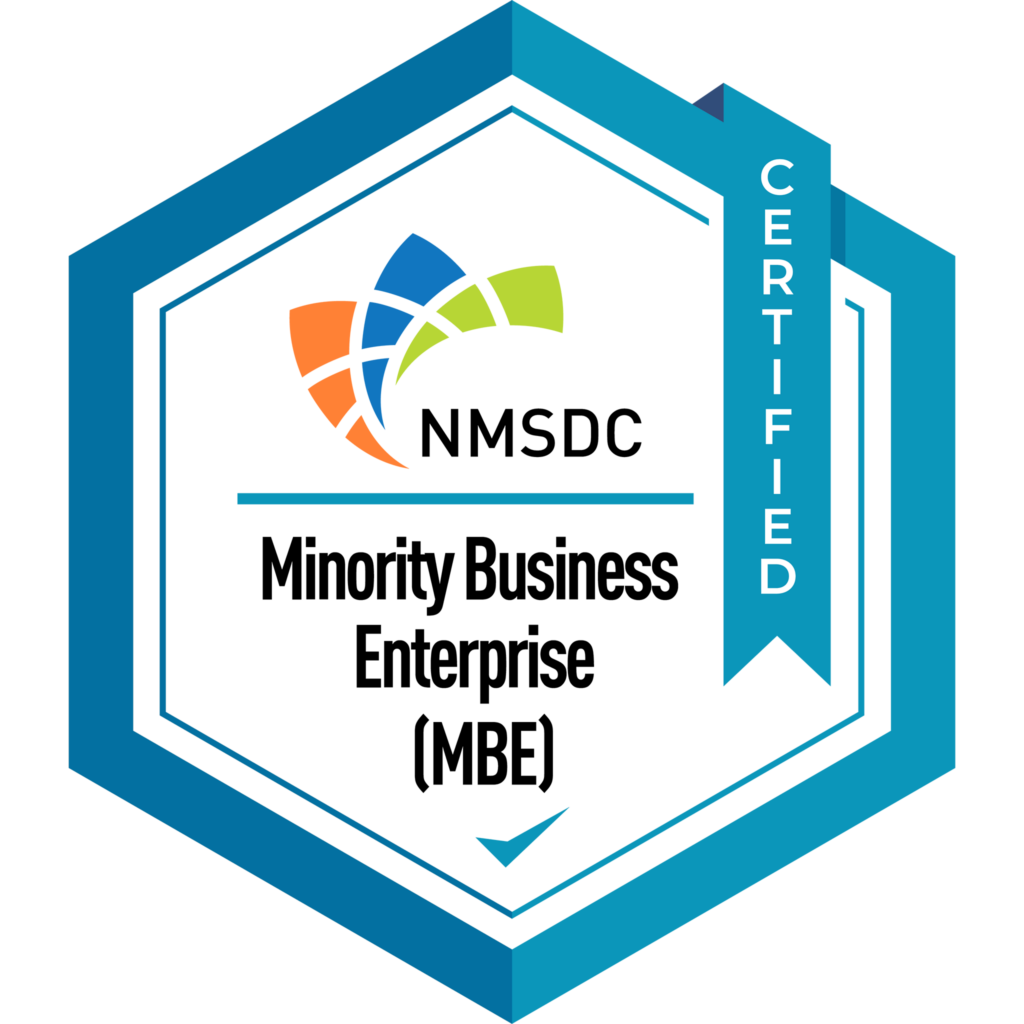If you read the tech news, you might believe that every business is using generative AI (GenAI) to increase efficiency and productivity. But the real picture is quite different. Relax, you’re not falling behind. Let’s dive in.
GenAI Is Here, but Don’t Rush to Implement It
GenAI is in the news these days. But for mid-sized and larger businesses, uncertainty and skepticism remain. Questions about data ownership, security, and costs can make adopting a GenAI strategy prohibitively expensive, of questionable value (return on investment), and difficult to define and implement.

“As revolutionary as it may be right now, more innovation is coming that will make generative AI seem obsolete. Don’t ask yourself how you’ll modify your business today to maximize the capabilities of ChatGPT. Instead, ask yourself how you’ll create the foundation now so your business can quickly adjust for every other ChatGPT (and new version of it) that’s still to come.”1
In short, what does GenAI mean for your company? Maybe less than you think, for now. In this article, we cut through the hype to discuss the pain points, our lessons learned, and possibilities that come with adopting GenAI for your business, now and into the future.
Let’s begin by discussing Prowess Consulting’s experience in considering a GenAI strategy.
Our Experience with Adopting a GenAI Strategy
As a consulting company with more than 20 years of experience working with technology giants such as Microsoft, AWS, Intel, and Dell, Prowess Consulting (“Prowess”) has amassed a deep library of varied content. We have a detailed process for creating fresh marketing content and well-researched, expertly crafted technical materials for our clients.
Out of concern that Prowess might be losing industry traction and momentum by not incorporating GenAI technology into our work sooner rather than later, we considered using it to help us formulate, plan, and generate deliverables for our clients. The range of what we produce at Prowess includes not only technical papers, research reports, Microsoft PowerPoint decks, videos, and infographics but also social-media content such as blog posts/articles, LinkedIn posts, and tweets, among other types of assets.
These plans encountered the typical ethical and legal roadblocks and conundrums that have become unavoidable, universal facts of life in today’s evolving GenAI-influenced realities. For example, we needed to have new and challenging conversations about intellectual property (IP) ownership, copyright/licensing concerns, honesty, accountability, and transparency. Would Prowess’ writers, editors, and graphic designers truly be producing these works? Or would true authorship become a vague, hazy concept, with the credit for much of the content being at least partly attributable to some mysterious “black box” regurgitating information pulled from myriad unfiltered web-based sources? If we licensed another company’s GenAI tool (Microsoft Copilot, for instance) to produce outlines or preliminary drafts, how could we protect not only our content but our clients’ content from spilling out into the internet and out of our control, with few or no guardrails?
After much consideration, we changed our initial approach to integrating GenAI tools into our content development workflows. Instead, we decided to focus our efforts on developing a more refined, targeted, and deliberate set of best practices and outputs, such as by using GenAI for internal research, fact-checking, and the creation of rich outlines.
Consider Your Own Pain Points Regarding GenAI
- There is anxiety over falling behind. Maybe your company hasn’t yet started using GenAI in a strategic manner. Perhaps your organization has implemented a GenAI strategy that was unsuccessful, or it hasn’t been able to agree on a strategy.
- You’re overwhelmed by the sheer volume of choices. Every day it seems as if a new GenAI-enabled platform is unveiled. Does your business need its own GenAI-driven application, or should you license an existing tool? Despite the outward appearance of everyone rushing to adopt the technology as soon as possible, many businesses are holding back on committing to AI or are even banning the use of it.2
- You’re uncertain about the first steps to adopt GenAI. After all, there’s no guarantee that deploying GenAI processes will help your business thrive. Not only does adopting GenAI involve a number of risks and costs, but realizing a return on your investment (ROI) is far from guaranteed.
- You have concerns about data privacy and security, not to mention ethical and legal questions. Data security, privacy concerns, and exposure of data should be at the forefront of the agenda when discussing a GenAI strategy. A 2024 Cisco privacy study found that many businesses are restricting or imposing limits on the use of GenAI technology based on data privacy and security concerns.3
- Your business faces a lack of resources and talent to implement AI. There are large upfront costs and risks in building a GenAI infrastructure and hiring the talent to manage it. Even the tech giants are competing for talent with million-dollar payouts or promises of stock initiatives. It can be difficult for a business of any size to bring qualified consultants and experts onboard.
What Can Your Business Do Right Now About GenAI?
GenAI is part of a fluctuating, paradigm-shifting group of digital technologies. Today’s ChatGPT could be rendered virtually obsolete when another tech giant’s newer, better large language model (LLM) is launched, followed by the next one, and the one after that. Developing a GenAI strategy for your business during this period of widespread, justified uncertainty comes with its own set of considerations and caveats:
- Ride out the storm. Waiting for GenAI platforms to figure out the details over copyright and fair use rules, data usage, and power consumption might prove to be the best, safest choice for now.
- Build your own. You could invest in your own GenAI platform, hire experienced staff, and purchase the infrastructure to support it. Only you and your business can determine whether this choice will produce sufficient ROI to make this step worth the effort and cost.
- License someone else’s platform. A host of GenAI tools available now claim to do everything from mastering your inbox to monitoring your network operations. But ask yourself this question: How do these tools fit within your own business processes?
- Defend the castle. What about protecting proprietary company IP, such as sales figures and user data? How might adopting a GenAI tool affect privacy and security in that regard?
Where to Go from Here
GenAI is not a good fit for every workflow or every business. Relax; you’re not falling behind. If GenAI doesn’t make sense for your workstreams, don’t force yourself to use it out of fear of being left behind. These are still relatively early days in the GenAI hype cycle. AI technology will most certainly still be there—but more advanced—if and when your organization is ready to take the leap.
“…Midsize companies have their limits when it comes to resources and how much they’re able to scale. To combat these challenges, research suggests that midsize companies lean into an ecosystem of partners to compete with large enterprises in the fast-paced world of AI. Gaining access to the right talent, data, and ideas is critical.”1
In the meantime, become acquainted with this technology and be prepared for its evolution. There are steps you can take right now. Review technology newsletters and white papers, attend webinars or discussions with technology associations, learn about pilot programs or free-to-try demonstrations, and compile a reading list of relevant publications from sources you trust. You can also reach out to Prowess to provide guidance on best practices, tools, and resources to ensure a smooth, productive, and actionable assessment of your GenAI projects.
Whether you want to enhance your existing workflows, create new products or services, or gain insights from your data, Prowess can help you employ the power of GenAI to transform your business and stay ahead of the competition.
To Learn More
Read more about AI and Generative AI in the following Prowess articles and reports:
- The Rise of the AI PC
- Navigating AI for Business with Expert Guidance from Prowess
- How Your Business Can Be Prepared to Embrace AI Today
To learn more about what we do at Prowess Consulting, view our latest research and follow us on LinkedIn.
1 Harvard Business Review. “How Midsize Companies Can Keep Up with AI.” May 2023.
2 CFO Dive. “One in four companies ban GenAI.” January 2024.
3 Cisco. “Cisco 2024 Privacy Benchmark Study.” 2024.
Related Posts

Compliance Is Content: How Prowess Consulting Brings Value to Enterprise Regulatory Change Management
Enterprises find compliance management challenging due to its complexity, cost, and intricacies. At Prowess, we realized the solution was not in expanding our standards expertise

Introducing Prowess LEAP™: AI-Enabled Insights for Modern Marketers
The Prowess LEAP™ service (Listen, Explore, Analyze, Produce) is an advanced content-analysis service powered by Prowess’s proprietary AI-augmented platform. This unique service takes a holistic

Becoming ‘Always-On’ in 2025: The 6 Key Steps
Credit unions can’t rely on the old marketing calendar. Learn the six key steps to adopting an always-on strategy that uses data, automation, and personalization.



